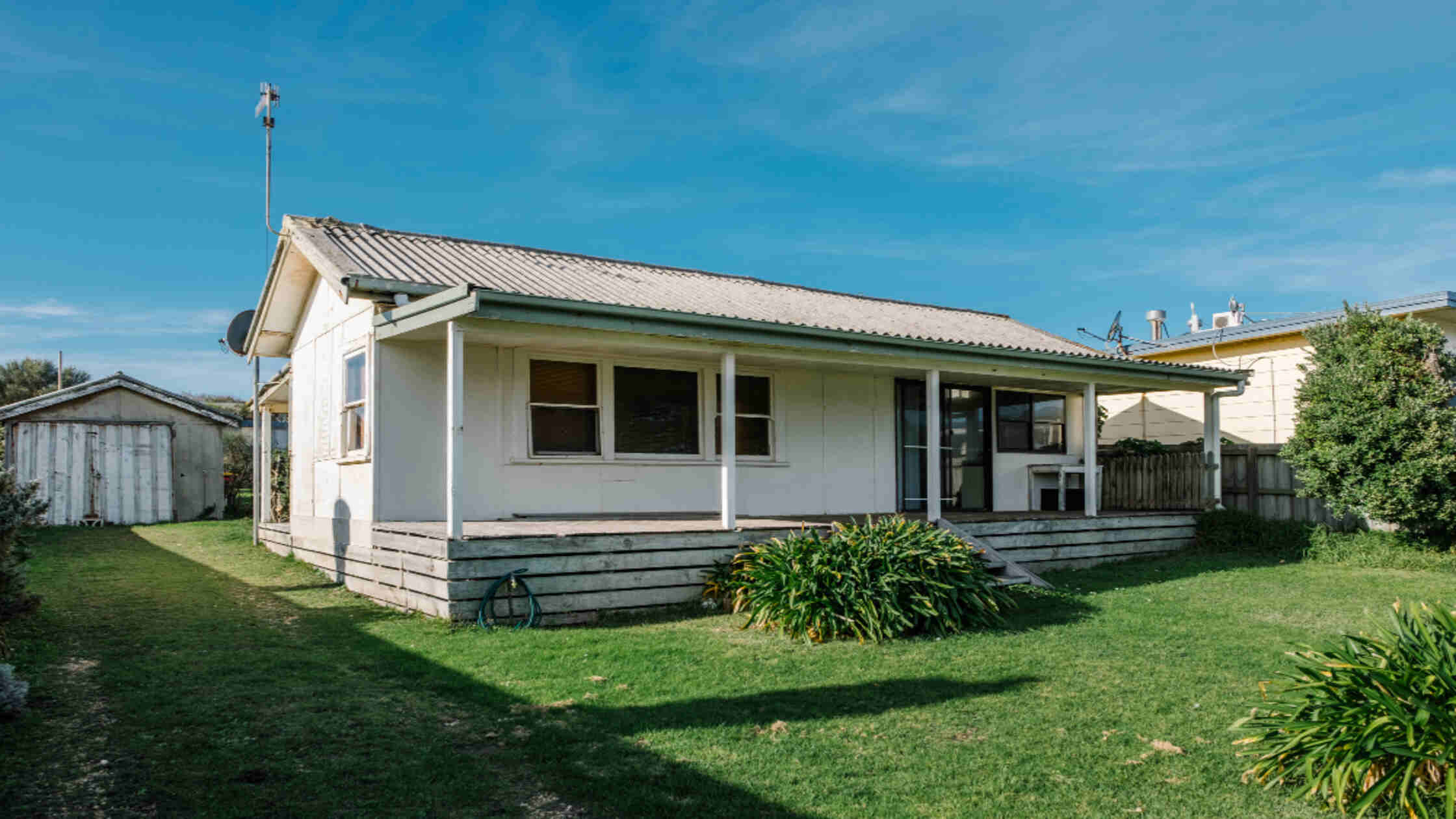Regarding property ownership, a few topics are as misunderstood (or, as alarming) as squatter rights. In Arkansas, these laws have specific rules and nuances that can impact landowners and squatters alike. This guide will break down the current Arkansas squatter rights, dispel common myths, and empower you with the knowledge to safeguard your property in 2025.
Overview of Arkansas Squatter Rights

When you think about squatter rights, you might picture someone sneaking onto your property and refusing to leave. But in Arkansas, squatter rights are tied to a legal concept called “adverse possession.” Understanding this concept can save property owners from confusion if someone tries to claim Arkansas squatter rights to their land. Let’s break it all down in plain terms.
What are squatter rights in Arkansas?
In Arkansas, individuals can gain legal ownership of a property through squatter rights if they openly and continuously occupy it and meet specific conditions over a long period, as outlined by adverse possession laws.
A squatter must occupy a property for seven years to potentially claim ownership. However, they can't simply move in and take over. They need to meet certain conditions, such as making improvements to the property or paying property taxes while they live there.
Simply put, Arkansas squatter rights come with legal strings attached that both squatters and landlords need to understand. For landlords, it’s also important to note that ensuring your property is protected from unauthorized occupancy can include things like securing an Arkansas security deposit from tenants to prevent damages and encourage proper care of the property. This additional financial protection can help landlords avoid complications should a tenant abandon the property or become involved in legal squatting disputes.
Squatting vs. Trespassing
Trespassing happens when someone enters your property without permission, and it’s illegal right from the start. Squatting, on the other hand, may begin as trespassing but can evolve into adverse possession in Arkansas if the person meets all legal requirements over time.
Here’s a tip to differentiate between squatting and trespassing: If someone sets up a tent in your backyard without permission, that is considered trespassing. In contrast, if a person occupies an abandoned property, takes care of it, and meets the legal requirements in Arkansas for seven years, they may be able to claim Arkansas squatter rights.
Why Arkansas Squatter Rights Matter for Property Owners?
Arkansas squatter rights directly impact property owners, especially those with vacant or underused properties. These laws exist to encourage the productive use of abandoned or neglected land, but they can also lead to challenges for owners who aren’t actively managing their properties.
When someone occupies a property and meets the legal requirements for adverse possession in Arkansas, they can potentially claim ownership. For landowners, this means that neglecting regular maintenance, failing to monitor the property, or not paying taxes could allow squatters to establish Arkansas squatter rights.
Arkansas Trespassing Laws and Squatter Protections
Knowing what counts as trespassing in trespassing laws in Arkansas, and what the penalties are, can help you stay ahead of potential issues with unauthorized occupants.
What Qualifies as Trespassing in Arkansas?
Trespassing laws in Arkansas occur when someone enters or remains on private property without the owner’s permission. It doesn’t matter if they mean no harm, simply being on someone else’s land without consent can qualify as trespassing.
Common examples include:
- Walking onto fenced or clearly marked private land.
- Entering a vacant property without the owner’s permission.
- Refusing to leave after being asked by the landlords.
Importantly, trespassing laws in Arkansas recognize signs and barriers as clear indicators of private property. If someone ignores a "No Trespassing" sign or hops a fence, they’re breaking the law.
Penalties for Trespassing on Private Property in Arkansas
The penalties for trespassing laws in Arkansas can vary depending on the circumstances. In many cases, trespassing is considered a misdemeanor, which can result in fines or even jail time.
- First-time trespassers may face a fine of up to $500 and up to 30 days in jail.
- If someone trespasses with intent to damage property or commit another crime, the penalties can escalate quickly.
- Repeated offenses or trespassing in areas with heightened protections (like farmland or fenced property) can lead to harsher consequences.
Adverse Possession in Arkansas: How Squatters Can Claim Property

While the idea of someone claiming Arkansas squatter rights to land they don’t own might sound unfair, adverse possession laws are meant to promote the use of abandoned or neglected property.
Legal Requirements for Adverse Possession in Arkansas
Adverse possession Arkansas follows a clear set of criteria. Squatters must demonstrate:
- Continuous Possession: The squatter must live on or use the property without interruption for at least seven years.
- Open and Notorious Use: The occupation must be obvious to anyone, including the rightful owner. Hiding doesn’t count.
- Exclusive Possession: The squatter must be the only one using the property, not sharing it with the owner or others.
- Hostile Claim: It means the occupation is against the owner’s interests and without their permission.
- Color of Title: In some cases, squatters must have a document, even if flawed, that gives the appearance of ownership.
The Role of Property Taxes in Adverse Possession Claims
In Arkansas, squatters who consistently pay taxes on a property for the required seven years bolster their argument for ownership. Paying taxes demonstrates an effort to maintain and take responsibility for the property. For landlords, this is an important reminder to stay on top of tax payments. Failing to do so not only risks penalties but also creates opportunities for squatters to build a stronger adverse possession Arkansas claim.
How to Legally Deal with Squatters in Arkansas
Dealing with squatters can be stressful. Therefore, taking swift and informed action is the best way to regain control of your property. Here are 5 essential steps to deal with squatters:
- Step 1: Start by notifying the squatter that they are trespassing and must leave. In some cases, a simple conversation or written notice can resolve the issue.
- Step 2: File a formal eviction. Arkansas law requires property owners to serve an Arkansas eviction notice and follow court procedures to remove unauthorized occupants.
- Step 3: If the squatter doesn’t meet the legal requirements for adverse possession, they are trespassing, which is a criminal offense. Law enforcement can help remove trespassers, but this route works best when you have clear evidence that no legal claim exists.
- Step 4: Prevention is always better than cure. Regularly inspect your property, install barriers like fences, and clearly post “No Trespassing” signs to deter squatters.
- Step 5: Consult an attorney. Adverse possession and eviction laws can be complex. A real estate attorney can help you navigate the legal process.
Arkansas Abandonment Laws and Their Impact on Landlords
Arkansas abandonment laws define when a tenant has legally abandoned a property, which can impact how landlords handle the space and protect it from squatters.
What is Considered Abandonment in Arkansas Property Law?
Abandonment in Arkansas occurs when a tenant leaves the rental property without notifying the landlord, stops paying rent, and demonstrates no intention to return. While there isn’t a strict timeline outlined in Arkansas law, landlords typically consider a property abandoned when:
- The tenant is overdue on rent, based on Arkansas Code of 1987 (2023) :: Title 18 - PROPERTY (§§ 18-1-101 — 18-61-106)
- The tenant’s personal belongings are removed from the property.
- Utilities are disconnected or unpaid.
Landlords are advised to document the situation thoroughly before proceeding with reclaiming the property. This includes taking photos, noting the absence of personal belongings, and attempting to contact the tenant.
Tips for Landlords to Handle Abandoned Properties to Prevent Squatters
Proactive tips help landlords reclaim and secure abandoned properties while minimizing the risks of squatting.
- Secure the property: Change locks, fix broken windows or doors, and install a security system to prevent unauthorized access.
- Inspect the property immediately: As soon as a property appears abandoned, visit the site to assess the situation and confirm the tenant’s absence.
- Clear out leftover belongings legally: Personal items left behind must be handled according to Arkansas laws, which often require storing them for a specific period before disposal.
- Keep the property maintained: Regular upkeep, such as mowing the lawn and removing debris, deters squatters by showing that the property is actively managed.
- Communicate with neighbors: Nearby residents can alert landlords to suspicious activity or unauthorized occupants.
Is Free Land Available in Arkansas? Legal Alternatives to Squatting
The idea of free land in Arkansas often sparks curiosity, but while "free" land might not technically exist, there are government programs and incentives that offer low-cost or discounted land opportunities. These alternatives are legal, accessible, and a far better option than risking the complexities of squatting.
Government Programs for Free or Low-Cost Land in Arkansas
Certain areas in Arkansas offer land at little to no cost, often as part of initiatives to encourage development in small towns or rural areas. You can refer to these programs:
- Homesteading Programs: Some towns in Arkansas provide free or inexpensive land to individuals willing to build homes or start businesses, contributing to the local economy.
- Agricultural Incentives: Programs aimed at revitalizing farmland often provide affordable plots for those in agriculture.
- Redevelopment Projects: Urban areas seeking revitalization may sell vacant lots at steep discounts, particularly for residential or commercial development.
Who Qualifies to Obtain Free Land in Arkansas?
Eligibility for free or low-cost land in Arkansas depends on the specific program, but common requirements are:
- Commitment to developing the property: Many programs require recipients to build a home, business, or other structure within a set timeframe.
- Residency requirements: Some towns or programs require recipients to live on the property for a certain number of years.
- Financial stability: Demonstrating the ability to fund construction or pay associated fees is often a prerequisite.
- Agricultural or business plans: For farmland or commercial incentives, applicants may need to present a viable plan for using the land productively.
These opportunities make Arkansas an appealing state for those seeking affordable ways to acquire property legally.
Common Law Marriage and Property Rights in Arkansas

Unlike some other states, Arkansas does not recognize common law Arkansas marriages formed within its borders. This means couples who live together without being legally married do not automatically gain spousal rights to property.
When a relationship ends or one partner passes away, property ownership disputes can arise. In these cases, Arkansas law treats the situation as it would for unrelated individuals. Typically, property owned by one partner remains with that individual unless both names are included on the title or deed. To ensure the protection of shared property interests, it is advisable for couples to consider establishing clear legal agreements, such as cohabitation agreements or joint ownership documents.
Recent Updates to Arkansas Squatter Rights Laws
Arkansas squatter rights laws have remained relatively consistent over the years, but recent changes have clarified the responsibilities of both property owners and squatters. Legislators have emphasized stricter enforcement of trespassing laws to help landlords protect their properties more effectively.
One notable update includes greater penalties for trespassers, which can now escalate to serious fines and criminal charges, depending on the circumstances. Additionally, there has been a push to simplify the eviction process for property owners dealing with squatters, reducing delays and legal hurdles.
For squatters attempting to claim adverse possession in Arkansas, the seven-year continuous use requirement remains unchanged. However, the law reinforces the need for squatters to demonstrate legitimate actions like paying property taxes and maintaining the property.
Conclusion
Property ownership is one of the most valuable assets anyone can have, and knowing the ins and outs of Arkansas squatter rights ensures you can safeguard it. For more in-depth information on property laws, tenant rights, and managing your real estate investments, check out resources on LeaseRunner!
FAQs
Q1: How to obtain a no-trespassing order in Arkansas?
To obtain a No Trespassing order, property owners should first post clear “No Trespassing” signs on their property. If trespassing continues, contact local law enforcement to file a formal complaint. A court order can then be issued to prohibit specific individuals from entering the property, particularly in recurring cases.
Q2: How to get free land in Arkansas?
Some communities in Arkansas offer free or inexpensive land through homesteading or redevelopment programs. Eligibility often includes commitments to build a home, start a business, or develop farmland.


